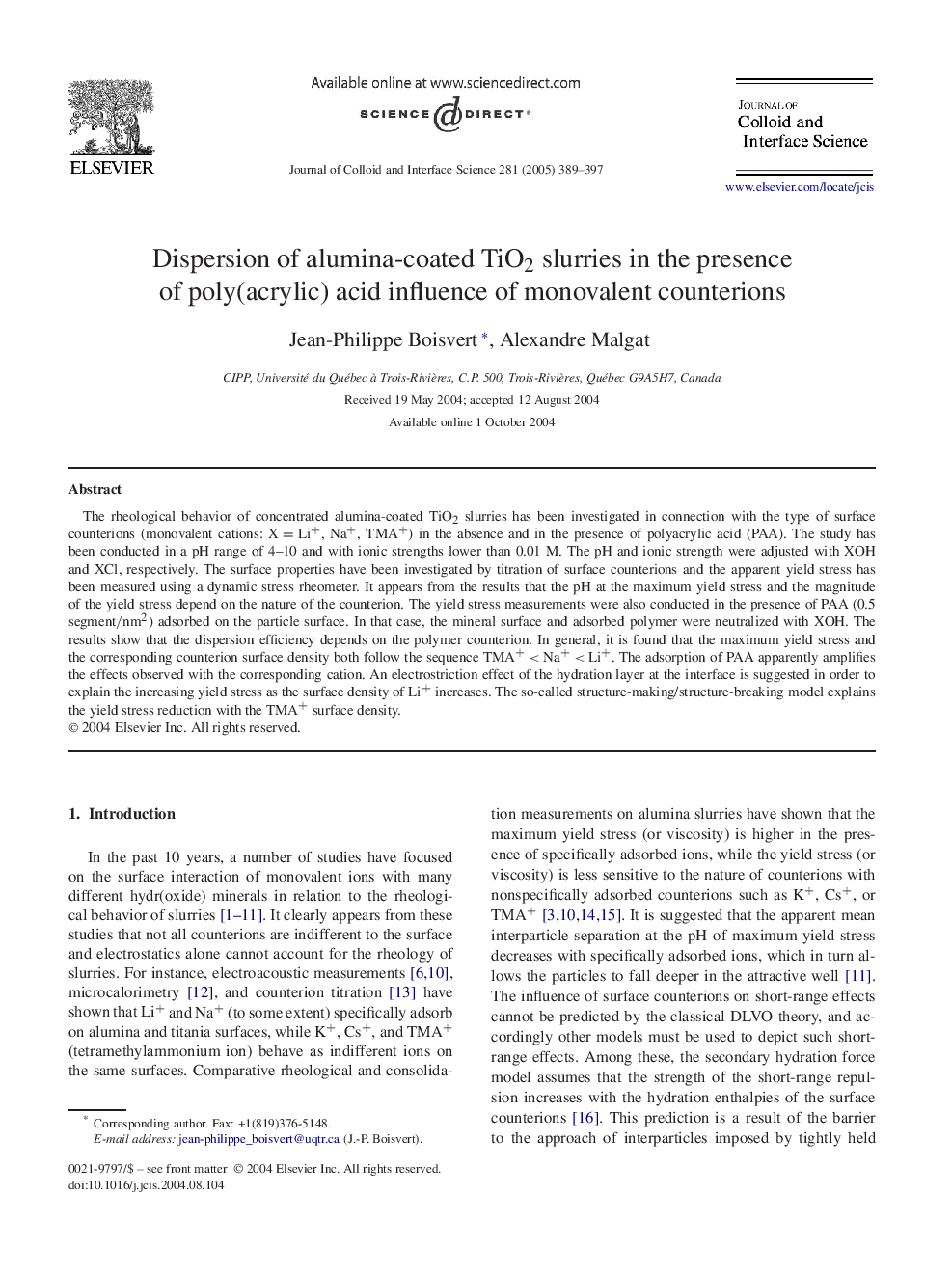| Article ID | Journal | Published Year | Pages | File Type |
|---|---|---|---|---|
| 10378343 | Journal of Colloid and Interface Science | 2005 | 9 Pages |
Abstract
The rheological behavior of concentrated alumina-coated TiO2 slurries has been investigated in connection with the type of surface counterions (monovalent cations: Xâ
=â
Li+, Na+, TMA+) in the absence and in the presence of polyacrylic acid (PAA). The study has been conducted in a pH range of 4-10 and with ionic strengths lower than 0.01 M. The pH and ionic strength were adjusted with XOH and XCl, respectively. The surface properties have been investigated by titration of surface counterions and the apparent yield stress has been measured using a dynamic stress rheometer. It appears from the results that the pH at the maximum yield stress and the magnitude of the yield stress depend on the nature of the counterion. The yield stress measurements were also conducted in the presence of PAA (0.5 segment/nm2) adsorbed on the particle surface. In that case, the mineral surface and adsorbed polymer were neutralized with XOH. The results show that the dispersion efficiency depends on the polymer counterion. In general, it is found that the maximum yield stress and the corresponding counterion surface density both follow the sequence TMA+â
<â
Na+â
<â
Li+. The adsorption of PAA apparently amplifies the effects observed with the corresponding cation. An electrostriction effect of the hydration layer at the interface is suggested in order to explain the increasing yield stress as the surface density of Li+ increases. The so-called structure-making/structure-breaking model explains the yield stress reduction with the TMA+ surface density.
Related Topics
Physical Sciences and Engineering
Chemical Engineering
Colloid and Surface Chemistry
Authors
Jean-Philippe Boisvert, Alexandre Malgat,
